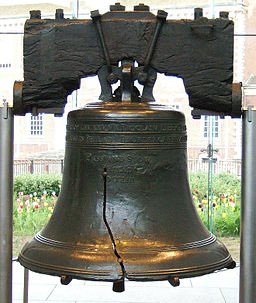| Jewish time turns in cycles and cycles within cycles. The most basic of these is the cycle of a single day which is made up of nighttime and daytime. Seven days make a week, with its pattern of six days of work and one day of Shabbat rest. We usually think of the weekend as a time for ourselves after a week of working for others, but the Torah says just the opposite. "The seventh day is a Shabbat for Adonai your God" (Exodus 20:10). The six days of work are for us. Shabbat belongs to God. |
For six years you plant your field and six years you prune your vineyard and harvest their produce. But in the seventh year there will be a complete rest for the land, a Shabbat for Adonai. You shall not plant your field or prune your vineyard. You shall not reap the aftergrowth of your harvest or gather the grapes of your untrimmed vines. It shall be a year of complete rest for the land. (Leviticus 25:3-5)
Seven years is a long time. In our society, which seems to have a short attention span, we do not really have any major institutions that run on that long of a cycle. Our presidential elections and the Olympic Games run on four-year cycles, which seems to be about as long as we can focus on anything. We do have a national census on a ten-year cycle, but that does not command the attention of an entire society the way that elections do…and certainly not the way that a society would be focused on a national commitment to refrain from planting and harvesting food for a full year.
There is a scholarly debate about whether the cycle of the Sabbatical Year was ever observed in ancient Israel the way it is described in Leviticus. It does seem dangerous. The Torah promises that a year of extra abundance would proceed the Sabbatical year to provide enough food. But what of the surrounding nations that could take advantage of the Sabbatical Year to attack the nation while it is vulnerable? There are those who say that the Torah presents the practice more for its ideals than for practical implementation. What is that ideal? The point of the Sabbatical year is stated plainly in the text. God says, "The land is Mine, and you are foreigners residing with Me" (Leviticus 25:23).
This idea is stretched even further in another cycle, seven times as long, also presented in this week's Torah portion. In the year that followed the end of seven Sabbatical Years (a total of 49 years) there was an extra year added to the cycle (a fiftieth year) that was called the Yovel (usually translated as "Jubilee Year"). In that year, not only were the fields left fallow for a second year in a row, all the fields that had been sold in the previous fifty years were returned to the original owner. All Hebrew slaves were freed in the Yovel.
As a side note, one cannot help notice the common theme in the Torah of cycles of time in the pattern of "seven plus one." The seven-day festival of Sukkot is followed by the one-day festival of Sh'mini Atzeret on the eighth day. The Counting of the Omer is seven weeks followed by an extra day to reach the festival of Shavuot on the fiftieth day. The Yovel is the largest "seven plus one" pattern, with an extra, fiftieth year to cap off the cycle of seven seven-year cycles. There must be a reason…
The words from this week's Torah portion that introduce the Yovel also are of interest for their connection to American history. "Proclaim liberty throughout all the land unto all the inhabitants thereof" (Leviticus 25:10), is the biblical quotation engraved upon the Liberty Bell that announced American independence from the British Monarchy in 1776.
Ironically, though, we think of the Liberty Bell as a symbol of autonomy—the right to live as we choose to live. In the Torah, it is clear that the message of the Yovel year is, again, just the opposite. All of the earth is God's and God makes the rules; we cannot permanently own anything.
There is something quite beautiful about these large cycles in time, whether or not they were ever observed exactly as they are described in the Torah. They acknowledge that the earth has its own integrity and its own need for rest. "Owning" a piece of land does not entitle any human being to use it however he or she wishes. At best, we may have a piece of land temporarily assigned to us, but even that cannot undermine our obligation to treat the land with respect and give it the year of rest that is sacred to God.
The same, of course, is true of human lives. We cannot be owned. We do not even own our own lives. In a cycle that takes up most of a typical human lifespan, we are reminded that our existence is temporary and beyond our control. Our highest aspiration in life, therefore, should not be to amass wealth or power, but rather to do joyfully all that we can to serve the higher purpose for which we were made.
Our lives do not belong to us. We belong to God. Perhaps that is the lesson that we rehearse in small and large cycles throughout our lives. Yet, it requires a lifetime to learn it completely.
Other Posts on This Topic:
Behar: Do Not Wrong One Another
Bechukotai: Being Commanded, Choosing Joy


 RSS Feed
RSS Feed
